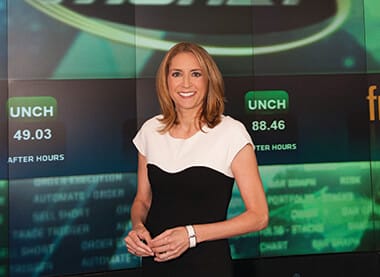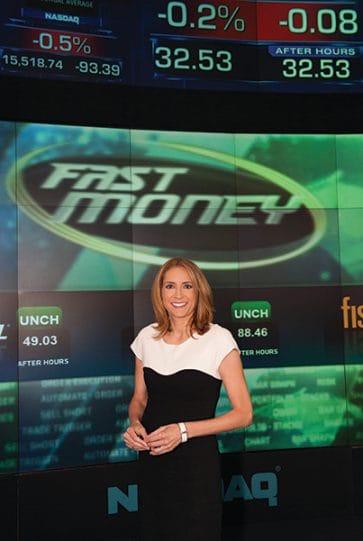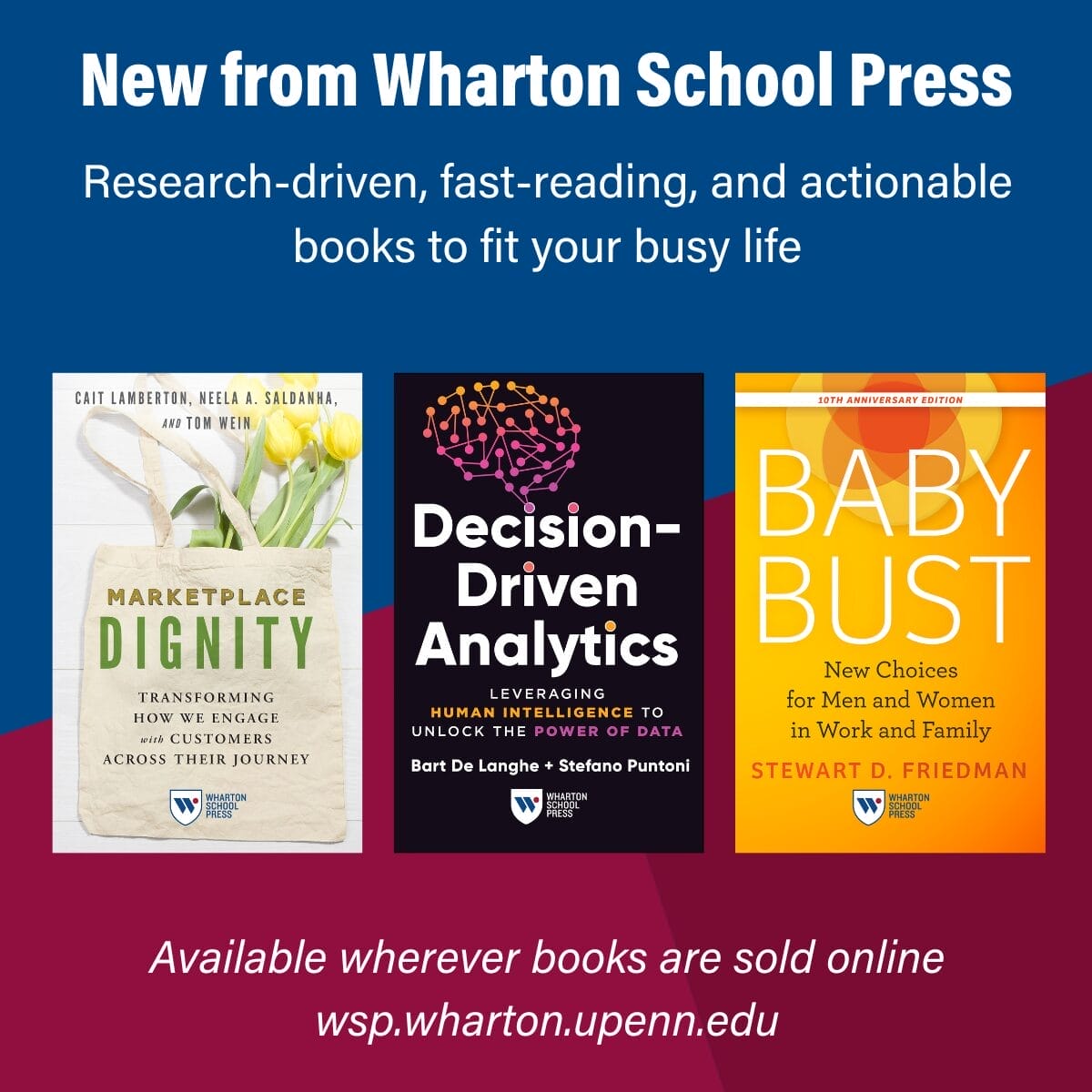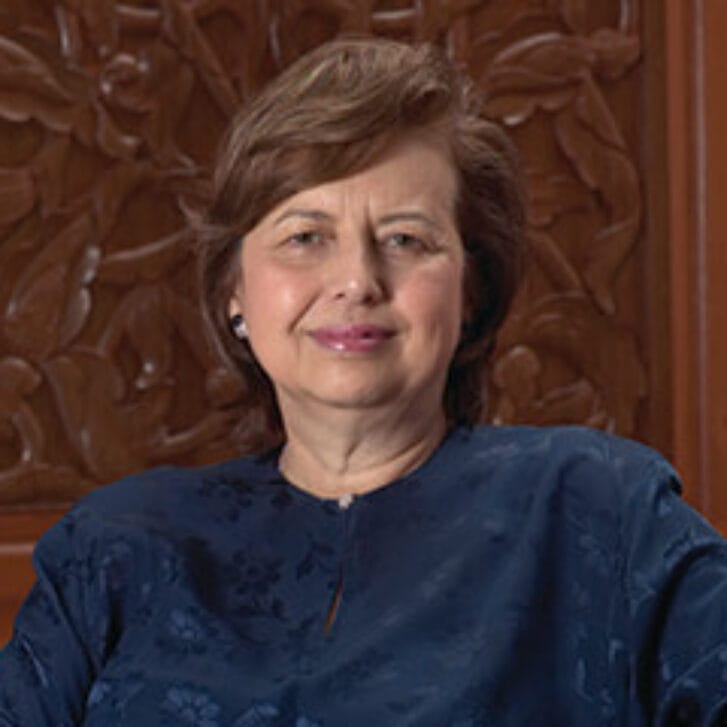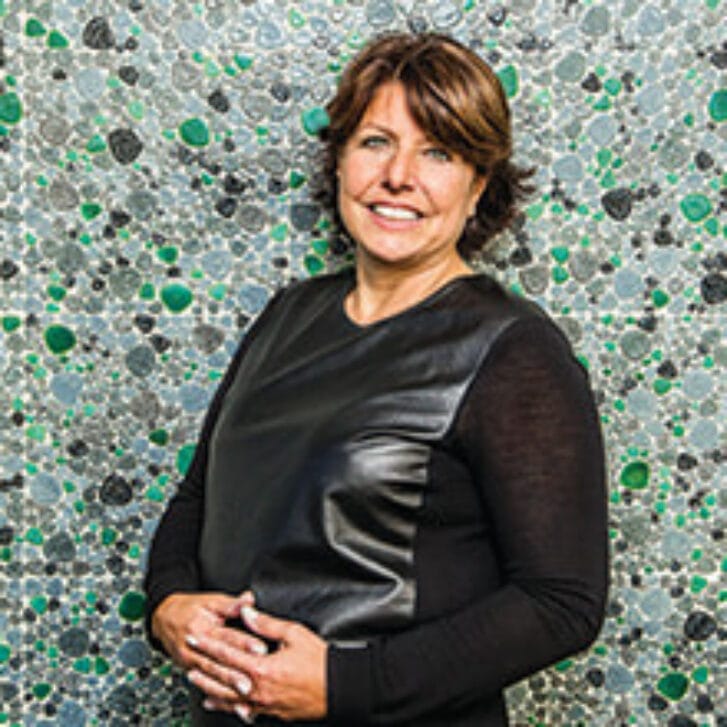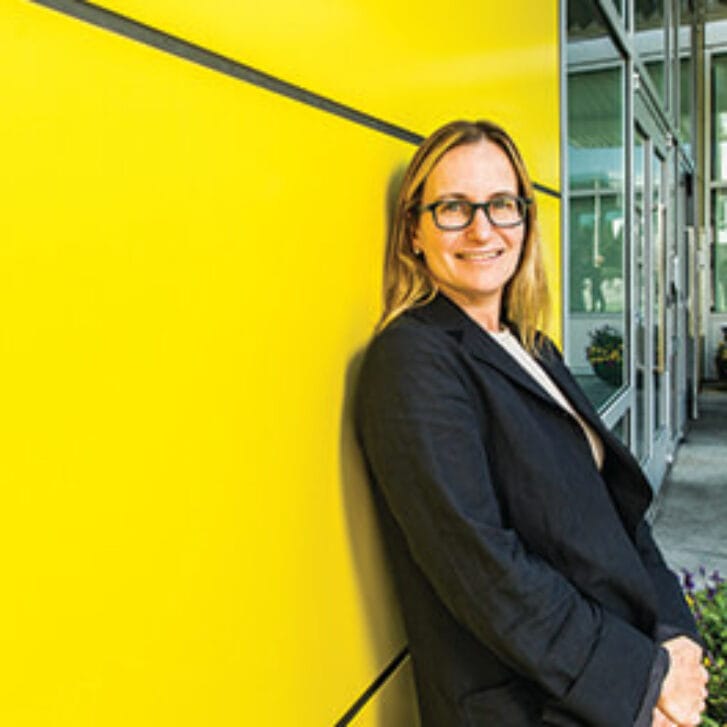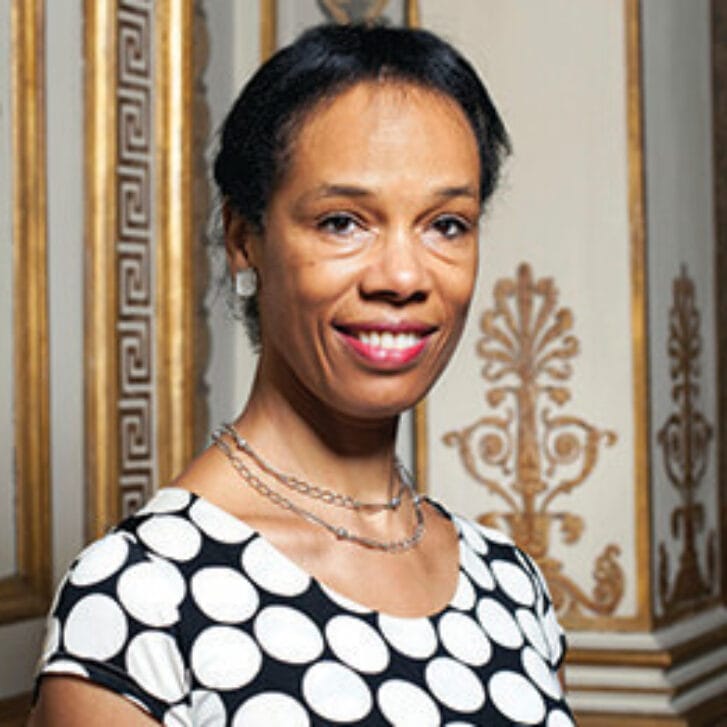She is both an entrepreneurial financier and a TV personality on CNBC’s Fast Money. She wrote a best-selling book titled Finerman’s Rules about being a leader in business and a mother of daughters (she has four children in all: two sets of twins, 16 years old and 12 years old, a boy and a girl in each.). When Karen Finerman, W’87, was 16 herself, things seemed clearer. She read an article by Ivan Boesky (before his conviction for insider trading) and decided she wanted to go to Wall Street to make money and become financially independent. She succeeded, ultimately co-founding the hedge fund Metropolitan Capital Advisors Inc. But with her multifaceted achievement comes a very nuanced and down-to-earth approach to life. She is always ready to tell it like it is.
WHARTON MAGAZINE: Your life has taken you from the West Coast to Wharton and Wall Street, then starting your own hedge fund to the media. At what point during your career do you think you stopped being a “woman in business” and became a “business leader”?
KAREN FINERMAN: “I’m not there yet,” would be my answer.
WM: Why?
FINERMAN: Because I think it is somewhat different to be a woman in business, certainly in a field where there are relatively few women.
WM: Can you ever really get away from the gender issue?
FINERMAN: No, and that’s OK because I do think that there are innate differences and that’s certainly not always the overriding factor.
WM: With your book Finerman’s Rules, did you intend to enter the “women in the workplace” debate? Do you intend to stay in the debate?
FINERMAN: I didn’t intend to. I certainly had no idea about Sheryl Sandberg’s book [Lean In]. I wasn’t aware of its existence at all until the month before it came out when I was invited to a book-launching party. It was interesting to me there’s an overlapping—we’ve had similar experiences, hers on a much bigger scale.
I have some positions, some views, that are not so PC, that don’t quite mesh with hers. For example, I think working at home as a working mother is the worst of both worlds.
WM: Are there things you agree with Sandberg on?
FINERMAN: The one thing that resonates most with me from Sheryl Sandberg’s book is she says—it’s not quite verbatim—she knows of no woman, zero, who are very successful and do not have a partner, a real hands-on partner, at home, and that I think is really important. If you’re going to be a working mom, you have to have someone who is very hands-on, where it really is a partnership.
WM: It sounds like you have a more nuanced view than just women can have it all/they can’t have it all.
FINERMAN: I do, and maybe for some women having it all is being this primary number one parent all the time, but I know certainly at times in my life, that’s not been the case, and other times it has. But to have a partner who is willing to share those roles is extremely important, and I couldn’t do what I do without him [her husband is private-equity executive Lawrence Golub].
WM: What advice do you have for freshmen and first-year MBAs?
FINERMAN: I would say to them, “You will fail. Each of you will fail at something. In your career and in your life, somewhere, or both or maybe at the same time, and that’s going to be a really important turning point, that failure. It’s not so much that you’re failing, it’s what do you do from that failure.”
WM: What advice do you have about work-life integration?
FINERMAN: The advice is different to women than men just because it has to be just because of the biological differences, right? So if you want to have a family and you’re a woman, you’ve got to think about when that’s going to happen, and I realized later when it became difficult for me to get pregnant that we don’t get to choose exactly when it fits, when it’s the best time.
One of the most difficult issues women face is: Do they go back to work or not? And my advice to people who ask me about that is [to look] for the 51 percent solution, which is the outcome that works for you 51 percent of the time or more.
You have to expect to feel ambivalent at later points, expect to second-guess the decisions. Feeling that ambivalence doesn’t mean you’ve made the wrong decision; it just means it was a difficult decision.
WM: How much time did you take after each set of twins?
FINERMAN: I took off six weeks for the first set and eight weeks for the second.
WM: Do you see yourself as a role model?
FINERMAN: I accept that there are people who see me as a role model. After [one recent speaking engagement], I had this woman come up to me and say, “You’re my Ivan Boesky,” and I don’t think she realized that wasn’t a great thing to be someone’s Ivan Boesky, but it was funny.
WM: What does it mean to be a role model?
FINERMAN: I think I try to promote financial independence and that it’s OK to want to be ambitious. Now there’s an odd stereotype … that it’s OK to be successful for women, but it’s not OK to want to be successful, that somehow ambition is seen as impolite or it’s not a favorable characteristic. It should be OK.
Editor’s note: Read more about Wharton women and leadership and access the five other individual Q&As in our cover article, “On, About & For More Leadership.”




















